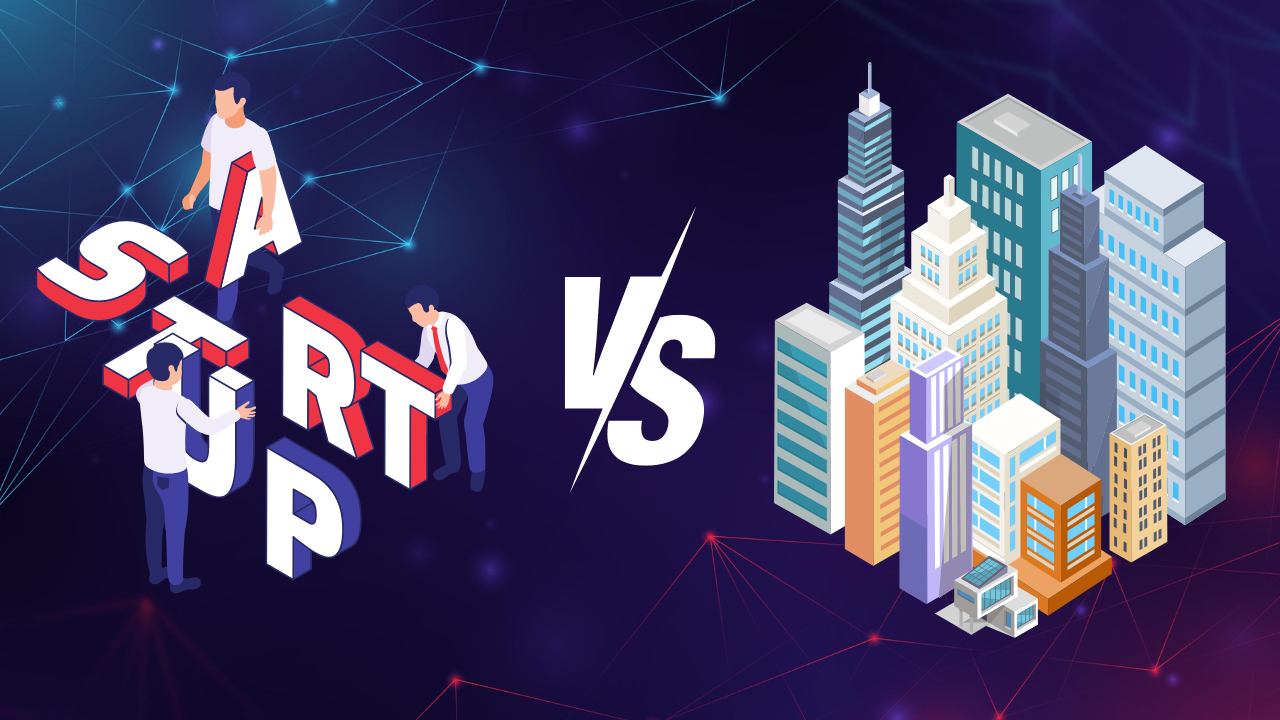
Tech Giants vs. Startups: Choosing the Right Work Environment
In the dynamic landscape of the tech industry, professionals often face a pivotal decision when it comes to their work environment: should they join a tech giant or embrace the entrepreneurial spirit of a startup? This exploration aims to provide insights into the distinct characteristics of both settings, helping individuals make informed decisions based on their career goals, preferences, and values.
1. Understanding the Dynamics:
a. Tech Giants:
– Structured Environment: Tech giants typically offer a well-established and structured work environment. Clear hierarchies, defined roles, and standardized processes are prevalent.
– Resources and Benefits: Employees at tech giants often enjoy robust benefits, extensive resources, and competitive compensation packages.
– Global Impact: Working for a tech giant provides the opportunity to contribute to projects with global reach, influencing the lives of millions of users.
b. Startups:
– Dynamic and Agile: Startups thrive on agility and adaptability. Team members wear multiple hats, and there’s a sense of shared responsibility.
– Innovation Culture: Startups are often hotbeds for innovation, encouraging employees to think creatively, take risks, and contribute to shaping the company’s direction.
– Close-knit Community: The smaller size of startups fosters a close-knit community where every individual’s contribution is visible and impactful.
2. Career Growth and Opportunities:
a. Tech Giants:
– Defined Career Paths: Tech giants usually have established career paths with clear trajectories for promotions and advancements.
– Specialization: Employees can specialize in specific roles or technologies, becoming experts in their domains.
– Training and Development: Large corporations often invest in training programs, enhancing employees’ skills and knowledge.
b. Startups:
– Broad Skill Development: In startups, individuals often wear multiple hats, leading to diverse skill development beyond one’s primary role.
– Rapid Advancement: With fewer hierarchical layers, employees may find opportunities for rapid career advancement based on performance.
– Entrepreneurial Exposure: Startups offer exposure to various aspects of business, fostering an entrepreneurial mindset.
3. Work-Life Balance:
a. Tech Giants:
– Structured Hours: Tech giants usually maintain standard working hours, promoting a more predictable work schedule.
– Workplace Benefits: Large corporations often provide extensive benefits, including wellness programs and facilities.
– Work-Life Integration: While demanding, tech giants may prioritize a balanced approach to work and personal life.
b. Startups:
– Variable Work Hours: Startups, especially in early stages, may require flexible hours and a willingness to go above and beyond during crucial phases.
– Ownership of Time: Employees in startups may have more control over their schedules, enabling better work-life integration.
– Intensity and Passion: Startups may demand intense periods of work, driven by the passion and commitment of the team.
4. Risk Tolerance and Stability:
a. Tech Giants:
– Financial Stability: Tech giants offer financial stability and job security, even in uncertain economic times.
– Established Market Presence: Large corporations usually have a solid market presence and a proven track record.
– Less Immediate Impact of Decisions: The impact of individual decisions may be less immediately visible in a large organization.
b. Startups:
– Risk and Uncertainty: Startups inherently involve more risk and uncertainty, as they navigate the challenges of market competition and funding.
– Innovative Ventures: The potential for groundbreaking innovations and disruptions can attract individuals seeking a transformative experience.
– Direct Impact: Contributions in startups often have a more direct and visible impact on the company’s success.
5. Cultural Fit and Values:
a. Tech Giants:
– Diverse Culture: Tech giants often have diverse and inclusive workplace cultures, embracing employees from various backgrounds.
– Corporate Social Responsibility: Larger corporations may engage in extensive corporate social responsibility initiatives.
– Formalized Policies: There are typically established HR policies and procedures in place.
b. Startups:
– Startup Culture: Startups often embody a unique culture marked by creativity, collaboration, and a shared sense of purpose.
– Agility and Adaptability: Startups value individuals who can adapt quickly to change and contribute proactively to the evolving environment.
– Personal Connection: Employees in startups may feel a stronger personal connection to the company’s mission and vision.
Conclusion:
Choosing between a tech giant and a startup ultimately depends on individual preferences, career goals, and risk tolerance. Tech giants offer stability, well-defined career paths, and resources, while startups provide dynamic environments, opportunities for rapid growth, and a closer-knit community. The decision is nuanced, and individuals should assess their priorities, values, and aspirations to find the work environment that aligns best with their professional journey.
Whether thriving in the structured corridors of a tech giant or embracing the uncharted territory of a startup, each path contributes uniquely to the vibrant tapestry of the tech industry.
